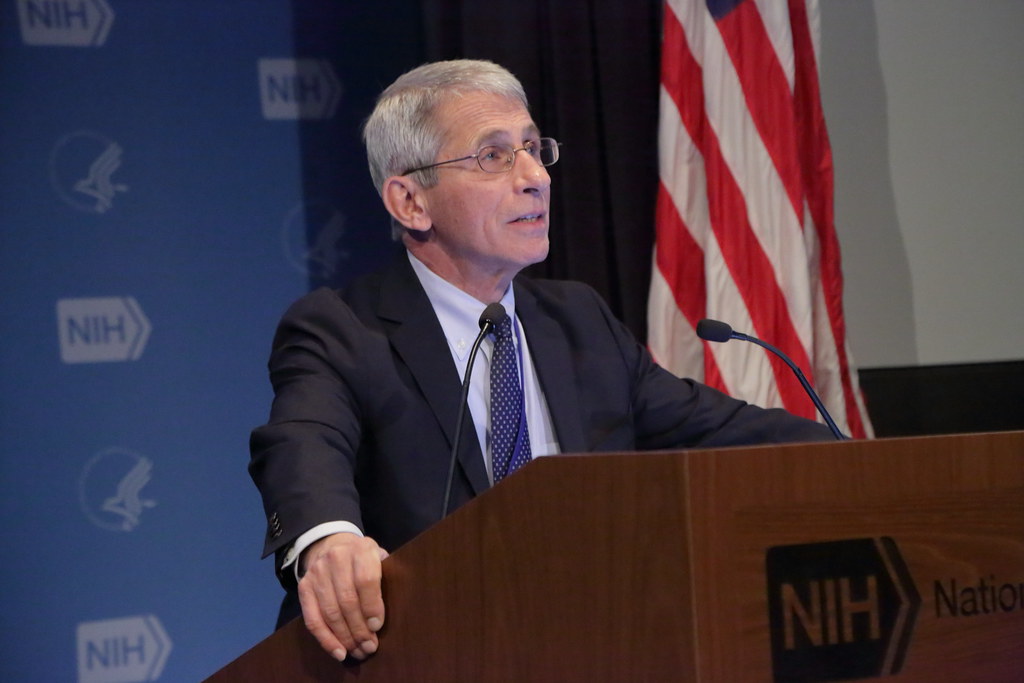Fauci Didn’t Practice the ‘Love’ for Adversaries He Now Preaches
Originally published at National ReviewDr. Anthony Fauci has a gentle column in the New York Times recounting how he and the late playwright and AIDS activist Larry Kramer became close friends despite their differences about how to best combat the AIDS catastrophe. The relationship began after Kramer published an opinion piece in which he called the government leaders responsible for responding to AIDS — which most specifically included Fauci — “murderers.” It culminated as Kramer’s life was ending in 2020 with the two former adversaries expressing their love for one another.
Of his “complex” relationship with Kramer, Fauci writes:
As we got to know each other better over the years, it became clear to me that despite his confrontational behavior, Larry had a pure, simple and unselfish goal — there were no hidden agendas with Larry. His passion was pure and his commitment unflinching in his attempts to jar people into realization of the seriousness of the AIDS epidemic. I quickly realized that despite his sometimes provocative behavior, he was as noble as the most respected scientist and public servant. And so we became brothers in arms.
That’s terrific. Sweet, even. I just wish Fauci had applied that lesson when dealing with those who disagreed with his recommendations during the Covid pandemic.
Take for example the authors of the Great Barrington Declaration authored in October 2020 — just a few months after Kramer’s death — by three noted epidemiologists, Drs. Martin Kulldorff of Harvard, Sunetra Gupta of Oxford, and Jay Bhattacharya of Stanford. The GBD disagreed with the recommendations of many public-health leaders — most specifically, including Fauci. In place of the mass shutdowns put in place at the behest of public-health leaders — which the authors perceived as a cure worse than the disease — the GBD proposed a policy of “focused protection” that shielded the elderly from Covid while allowing the rest of society to carry on. From the Great Barrington Declaration:
Coming from both the left and right, and around the world, we have devoted our careers to protecting people. Current lockdown policies are producing devastating effects on short and long-term public health. The results (to name a few) include lower childhood vaccination rates, worsening cardiovascular disease outcomes, fewer cancer screenings and deteriorating mental health — leading to greater excess mortality in years to come, with the working class and younger members of society carrying the heaviest burden. Keeping students out of school is a grave injustice.
Keeping these measures in place until a vaccine is available will cause irreparable damage, with the underprivileged disproportionately harmed.
Time has proven the prescriptions of the GBD more right than not. But regardless of whether one agreed with their opinion at the time, it was respectfully presented and certainly did not denigrate Fauci or other public-health officials as “murderers,” as Kramer had done.
So, Fauci responded to a respectfully presented difference of scientific opinion from these medical experts with respectful engagement and love, right? You know the answer.
For their temerity, Bhattacharya and his Great Barrington colleagues were slandered in an email to Fauci by NIH head Francis Collins as “fringe” doctors — which was obviously false as Bhattacharya alone had published more than 100 peer-reviewed professional articles. Worse, Collins urged Fauci to actively discredit the declaration with a “devastating takedown” rather than debate or discuss it, which would have been the proper scientific approach.
Fauci appears to have eagerly jumped to that task. He responded to Collins with a link to a story in Wired, in which science editor Matt Reynolds called the controversy over the proper response to Covid “a manufactured scientific debate.” At about the same time, a column in the Washington Post described the three authors as “mavericks.” The New York Times reported that Fauci castigated the GBD “as unscientific, dangerous, and ‘total nonsense,’” the latter charge he repeated on ABC News. More, according to a lawsuit filed by Kulldorff, Bhattacharya, and others against the government and public-health leaders, Fauci “coordinated directly with Facebook and/or other social-media firms to suppress disfavored speakers and content of speech on social media.”
The GBD authors soon found themselves the subject of media scorn, accused of being indifferent to Covid deaths, their reputations badly tarnished in the most public ways. This despite the authors’ motives clearly being “as noble” as Kramer’s during AIDS. (To hear Bhattacharya’s first-person description of that emotionally searing experience, hit this link to our interview on my Humanize podcast.)
So, I am glad that Fauci had a healing with Kramer, to the point, he writes, that “differences of opinion and even a history of antagonism are entirely compatible with friendship and even love.”
That’s entirely true. Too bad Fauci didn’t practice what he now preaches when he had the chance. Physician, heal thyself.
